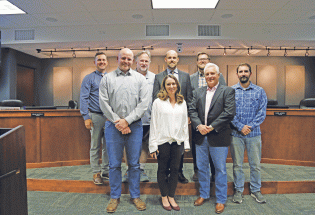Town board member code of conduct
By Rudy Hemmann
The Surveyor
During the meeting of Jan. 22, 2019, the trustees considered a written Code of Conduct which some board members thought needed to be agreed upon by the board.
The opening paragraph of a “draft document” for the Code of Conduct states among, other things, that the code dictates board members interactions with the town administrator, staff, media, the public and other stakeholders.
The specifics
Item 6 of the proposed code of conduct states, “…Individual board members are entitled to express dissent with a decision they disagree with. However, board members shall refrain from public campaigns or statements that undermine the position of the board majority. Board members agree that one member does not ever have the authority to speak for the board as a whole.”
Item 7 states, in part, “It is up to the board, and individual members, to hold themselves accountable to proper board member behavior and action. The board agrees that dysfunctional interpersonal interactions or public statements undermining board decisions is counterproductive and makes the board less effective.”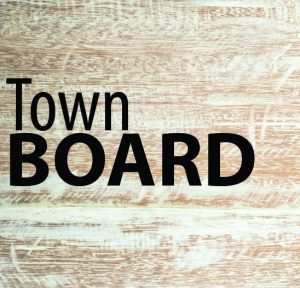
A clause of item 8 states, “After the majority has decided, the issue is closed and the board moves on to other issues, unless the majority of the board decides to revisit the issue.”
Item 11 states, “The board agrees that individual members not adhering to the code of conduct may be subject to censure or any other appropriate discipline available under Colorado State Statutes.”
In opening remarks Trustee Brian Laak stated, “We are allowed to govern ourselves – we get to make rules on how we decide to operate and run our meetings. I thought we’ve been doing all of this housecleaning everywhere else; let’s clean our own house. That was my intent for getting it on the agenda.”
Laak continued, “I recognize a lot of the verbiage in the (document). I think some of it may have come from me. I am curious how the other trustees feel about (the document). What they like and what they don’t like, and what we can agree to.”
“It’s a little like baseball and cricket,” said Laak, “It’s a much better game if we’re all playing by the same rules.”
Trustee Jeff Hindman stated he did not know whether Mayor Will Karspeck intended to take public comment on this item. Mayor Karspeck agreed it would be proper to hear public comment prior to having board discussion regarding the matter.
Berthoud resident Milan Karspeck stood at the podium to address the board. Milan expressed his opinion that “the board has a lot of range in what it can do to set its own rules, but not when it is in conflict with state statutes, since state statutes take precedent.”
He began by giving his thoughts concerning the difference between a council/city manager form of government and a statutory or mayor/council form of government, which is the form of government under which Berthoud operates. He then again expressed his opinion that elements of the first three items of the proposed code of conduct document were in conflict with the statutory form of government.
Milan concluded his remarks by stating it was far better for a board to encourage members to be vocal, to speak freely, “and not be affected by ‘group think’ of the board.” He stated he believed the credibility of a board is best when people are allowed to speak up.
His remarks were listened to by the board and when he had finished, Hindman asked Town Attorney Greg Bell to give his thoughts regarding Milan’s remarks, since he (Bell) had been copied on the email. Hindman asked him to comment especially on the distinction between the two forms of town/city government.
Bell stated, “There is a distinction, and (Milan) is correct if you took it to a certain point, but what you have to decide is – there is always going to be in any corporate body, and the first thing to realize is no member of the board carries any office except when convened as the board. Board of trustees does not give any individual board member managerial power over the town.”
Bell continued, “Once a policy is set (by the board) none of you are empowered, when not convened, to carry it out. Thus you hire a town administrator. My take in reading this (document) is you are trying to separate out, ‘How do we empower a town administrator, so the board does its job (establishing policy and governance) and that the administration is carried out through our hired representative, the town administrator.’”
Bell went on to point out if the administrator is developing policy jointly with the board then the board has moved slightly toward the city manager form which is different. He also noted he agreed with more than half of what Milan had said.
Hindman asked if some of what was in the proposed document was not statutory. Bell stated it was neither statutory nor non-statutory.
You are simply setting out, as long as you don’t go to the point of allowing policy to be made on the managers side, you are simply setting out conduct. How you are going to carry out your function and enabling your representative to carry out the administration.
Trustee Tim Hardy suggested the proposed document be sent with Bell, have the attorneys “clean it up” and present it to the board at the next meeting.
Bell was amenable with that, although he noted Hindman had indicated the proposed document was very close to a document from CML.
At this point Laak spoke up, stating the majority of the document came from CML and anyone could go on the internet and see many similar documents from small towns. Mayor Karspeck had some questions regarding the limits to which a statutory town board could go and still be considered a statutory community. Town Administer Chris Kirk answered by stating, “As a statutory town … the state statues allow the board to select a town administrator … ‘as is deemed necessary for the good government of the corporation, and shall prescribe, by ordinance, the duties as defined by law.’”
Bell answered questions concerning who he represented; the trustees or the board. He stated he would always be representing the board.
The mayor stated his support for the job being done by Kirk in the position of administrator.
Hindman requested, in the interest of running a “smooth and efficient” meeting, the board members make comments regarding what each member would like to see changed.
Trustee Pete Tomassi stated the process suggested by Hindman was more than they could “hammer out in the next 15 minutes,” and noted there were people in the audience for the metropolitan district discussion and out of respect for their time suggested the board convene a work session to consider the document brought forward along with other similar documents.
“At this point I would not vote in favor of this draft,” said Tomassi.
Laak, Trustee Maureen Dower and Hindman each gave lengthy opinions which were in opposition to Tomassi’s. Laak stated it was not “rocket science,” it should be easy to conduct discussion and get the document approved. He also stated his wish that people would refrain from using cell phones to record the comments of board members while they are speaking.
In her comments, Dower agreed that seeing members of the audience holding up a cell phone in order to record her comments was distracting.
Hindman decried the practice of cell phone recording as “totally inappropriate, very distracting and rude.” He stated he was ready to adopt the document as written, even if it only passed by a four to three vote.
Tomassi had the following question for Bell. “If four agree and three do not, how does that work? There seems to be some implications of not following this code when it comes to censure.”
Bell’s response, “Censure is simply the board making a public statement of ‘you are not complying with our code.’ I look at this (document) and think, ‘Could I clean it up? I think so.’ But I view this more as a statement of how you are going to behave with each other than any kind of ordinance.”
“I would like to go back to my initial comment,” said Tomassi, “I think we are getting deep into the weeds here and there are other agenda items tonight. I suggest we have a separate work session to create a code of conduct we can all agree on rather than try to hammer this out because we are going to be here all night and there is still a lot on tonight’s agenda.”
Hardy stated he, too, would like to see a final draft of the document before being asked to vote on it. He also wished to have the attorney look at the document and determine if there is anything “out of line” the board needed to be made aware of.
Following a confusion of comments by the members of the board Hindman suggested “If that is the sense of the board, let’s have everyone list what changes they want to see very concisely and succinctly, see if there are four people who agree with that, and those would go to staff to be incorporated and we can adopt it at the next regular meeting.
Hardy suggested each member of the board send his/her list to the attorney independently and move on with the meeting.
Hindman quashed that idea by saying “We need to know if there are four people who agree with each item. We have five items we have been asked to add. Let’s just see if we want to add them or not.”
Tomassi commented he thought it interesting that Hindman kept insisting the board make decisions based on a four to three vote. “Four people agree, four people agree … I was under the impression this was something we wanted the entire board to work with. Having more than four people agreeing so that we might move forward would be advantageous.”
Laak replied “It is possible some will never agree on some things.” He went on to note the code of conduct discussion had already been put off twice.
Hindman added, “I’ll be honest with you Pete (Tomassi), the person who is mostly the cause of this being put into writing is some of the things you have done and said at meetings and the recent campaign. I don’t really expect you to agree with some of the things in here. I think the majority of the board will agree with them and I don’t expect it to be unanimous.”
After that retort Mayor Karspeck set about the task of asking each of the trustees what they wished to see in the document, and by straw vote, determining if the majority of the board agreed.
- September, 27 2018
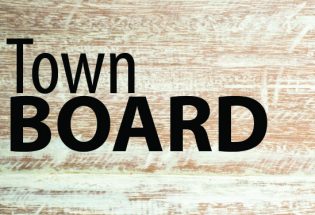
Board approves additional revenue fro...
By Becky Hemmann The Surveyor Tuesday evening’s town board meeting had a full agenda and...
- October, 03 2022

HGTV filming new season of Rock the B...
If you live in Berthoud, Colorado you already know what a spectacular place we get...
- April, 01 2019

Berthoud food drive unites the community
Courtesy photo -Berthoud scouts pile into a truck bed for a quick photo op while...
- October, 05 2017

Tanner Flores sentenced to life in pr...
By Amber McIver-Traywick The Surveyor The final chapter in the Tanner Flores trial happened within...
- May, 27 2021

White Paper BBQ
Things may not always work out the way you planned, but they can sure work...
- December, 07 2019

Igloo Sculpting
Photo by Eric Wallen Evelina and Dominic Wallen, along with Sky the Siberian Husky, play...

Turner Middle School saves and gives money
Community News
A wrestling journey: The legacy of Scott Pickert
Community News

Berthoud mulls Downtown Development Authority
Community News
Berthoud takes second in R2J Girls Invitational
Community News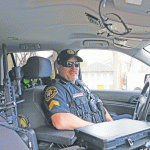
A day in the life as Berthoud’s top cop
Community News
Unified basketball comes to Turner Middle School
Community News
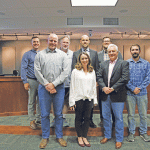
Mike Grace says goodbye as Brett Wing joins town board
Community News
POLICEBLOTTER
Community News
COMMUNITY CALENDAR:
Community Calendar – add an event
Homestead Fine Art Gallery First Fridays OPEN HOUSE
07 Jun 4:00 PM - 7:00 PM
Homestead Fine Art Gallery First Fridays OPEN HOUSE
05 Jul 4:00 PM - 7:00 PM
Homestead Fine Art Gallery First Fridays OPEN HOUSE
02 Aug 4:00 PM - 7:00 PM
Homestead Fine Art Gallery First Fridays OPEN HOUSE
06 Sep 4:00 PM - 7:00 PM
Homestead Fine Art Gallery First Fridays OPEN HOUSE
04 Oct 4:00 PM - 7:00 PM
Homestead Fine Art Gallery First Fridays OPEN HOUSE
01 Nov 4:00 PM - 7:00 PM

